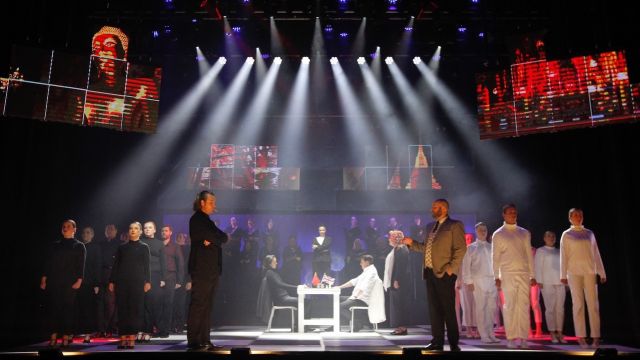Chess
Chess, the musical, was first performed in 1986, three years before the fall of the Berlin wall. It is nearly 40 years old and yet the eclectic music and story of political machinations retains relevance. Two superpowers contest world domination in a game. Antagonists are the unstable Freddie Trump (-er) and slightly more sympathetic Russian, Sergievsky. Sergievsky’s paean to Russia’s eternal heart connects individuals to nations in the lyric “Let man's petty nations tear themselves apart”. In the political and personal realms, the collateral damage is significant.
Encore Theatre Company never disappoints. In the afterglow of a cache of recent Tasmanian Theatre Awards, the standard is maintained.
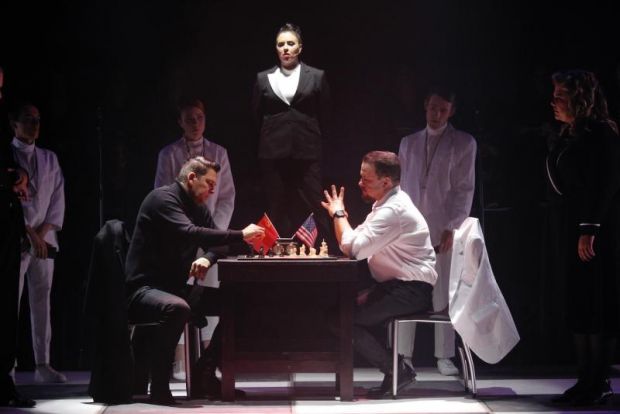
The set is a chess board, raked for better effect. Costume is black and white. This stark reality is augmented by exceptional lighting and audio-visual material in a collaboration by Darryl Rogers (set design), Jason Bovaird (lighting design) and Dwayne Parish (IT and AV). Integral to the plot is the response of the media and influence this has on the action. In a world before social media existed, this effect is augmented by Tetris blocks of screens suspended above the stage upon which are screened pre-recorded moments (with a humorous nod to the composers) offering outside perspectives. The screens also highlight thematic insights, for example, a conflagration of luridly burning chess pieces is suggestive of the inevitable breakdown of the game and the system.
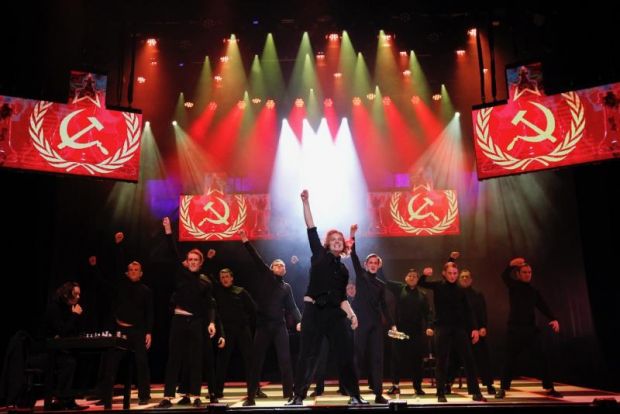
The chess board stage also lights up from below, delineating a preordained path for the performers or isolating them in their own dilemma. Bovaird provides dramatic colouring, especially in numbers such as “Bangkok” or the Merchandisers’ Spiel. Occasionally the follow spot struggles to find its target leaving some actors masked in downlighting. Sian Prideaux as the Arbiter may have been intentionally obscured like a malevolent puppet master. In creating mood and effect, occasionally the lighting made it difficult to work out who was singing.
On opening night, after a wobbly opening “Hymn to Chess”, the choir went on to create the fullness of sound the unusual and diverse score demands. The band under Michael Stocks is exceptional; so exceptional that sometimes the singers are overwhelmed. Those unfamiliar with the score are likely to struggle to comprehend the lyrics. Every note from the pit, however, is clear, balanced, tightly controlled and the bulwark of the sound.
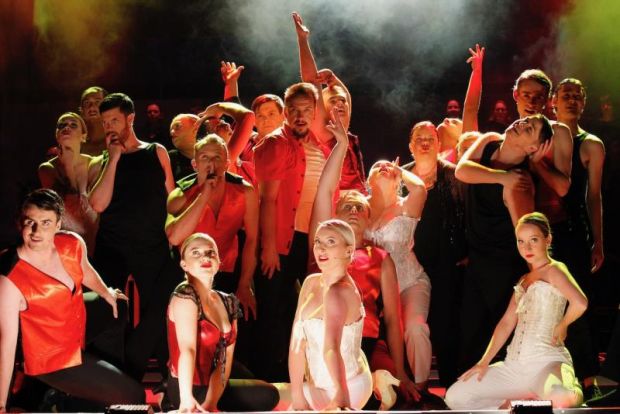
Costumes are designed with an homage to 80s style in the bare ankles of the men. Colour is employed in songs such as “One Night in Bangkok” and the child actor, torn between worlds, is dressed in a fine check that blends to grey. Pants suits with vampire like skirts are a feature of the Arbiter’s song. Women in heels do well to execute Trista Little’s choreography on the raked stage.
The set and ensemble of black and white chess pieces gave Trista Little many opportunities to work with shape and form. Some early choreography is highly stylised, and balletic whilst some relied effectively on simple devices. Having the chess pieces rotate in canon creates an excellent illusion. There is energy in “Merano”, “Bangkok” and the Merchandisers’ songs, although the opening to Bangkok lacked some impact with only four dancers on the expansive stage. When the ensemble chess pieces collapse at the end, the climax for the principal actors is enhanced.
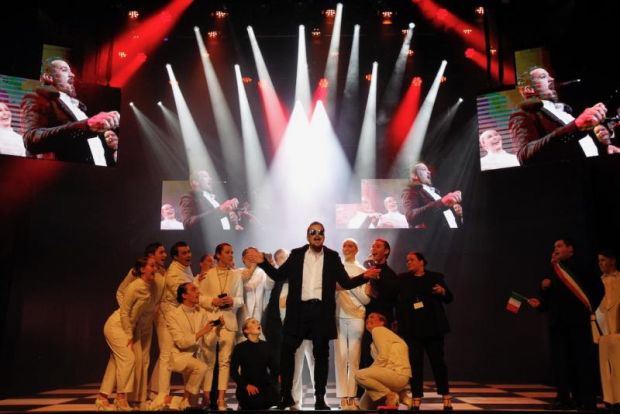
The principals are strong. There are not enough superlatives for Samantha Hammersley’s voice. Dean Cocker has the right vocal qualities for Sergievsky but the love story between the Russian and Florence Vassy is never fully convincing. Scott Farrow’s intelligent rendition of “Pity the Child”, does, however, elicit sympathy, despite Farrow having the more objectionable character to portray.
Farrow is perfectly cast as Freddie Trumper. His performance is raw, energetic and controlled. Supporting these three are Sean Prideaux as Arbiter, and Alana Lane as Svetlana. Prideaux is powerful and Lane gives a performance that is nuanced, expressing both the fragility and strength of the character. Aaron Beck portrays De Courcey as amiable and unthreatening whereas Matt Harris gives a Molokov who is eerily unhinged. Harris has a wonderfully resonant bass voice. Highlights are, of course, “Anthem”, “You and I” and “I know him so well”. Hammersley and Lane are beautiful in the latter, but Hammersley is especially compelling in “Heaven help my heart”. The best work, however, is in the small ensemble sections. “The Deal” (septet) and “Endgame” (sextet) are a powerful collaboration of all elements.
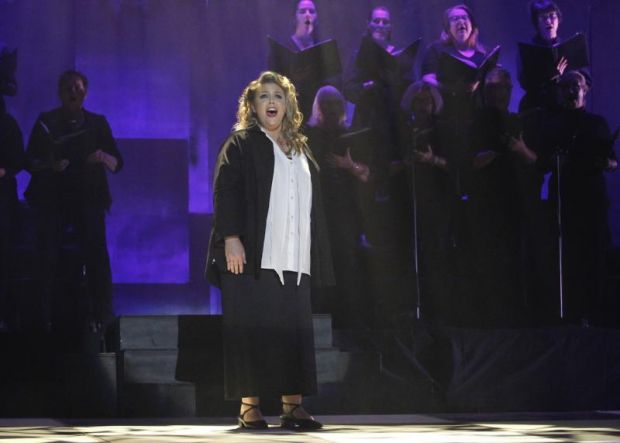
In the gorgeous Princess Theatre, Encore brings high production values to a show that appears to have as much, if not more, relevance now as to when it was first produced.
Anne Blythe-Cooper
Photographer: Ross Marsden
Subscribe to our E-Newsletter, buy our latest print edition or find a Performing Arts book at Book Nook.

